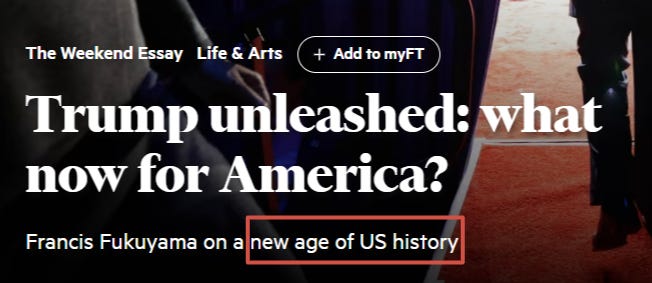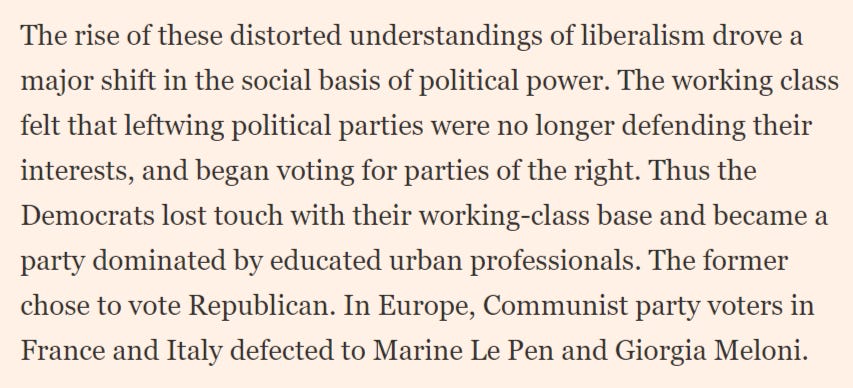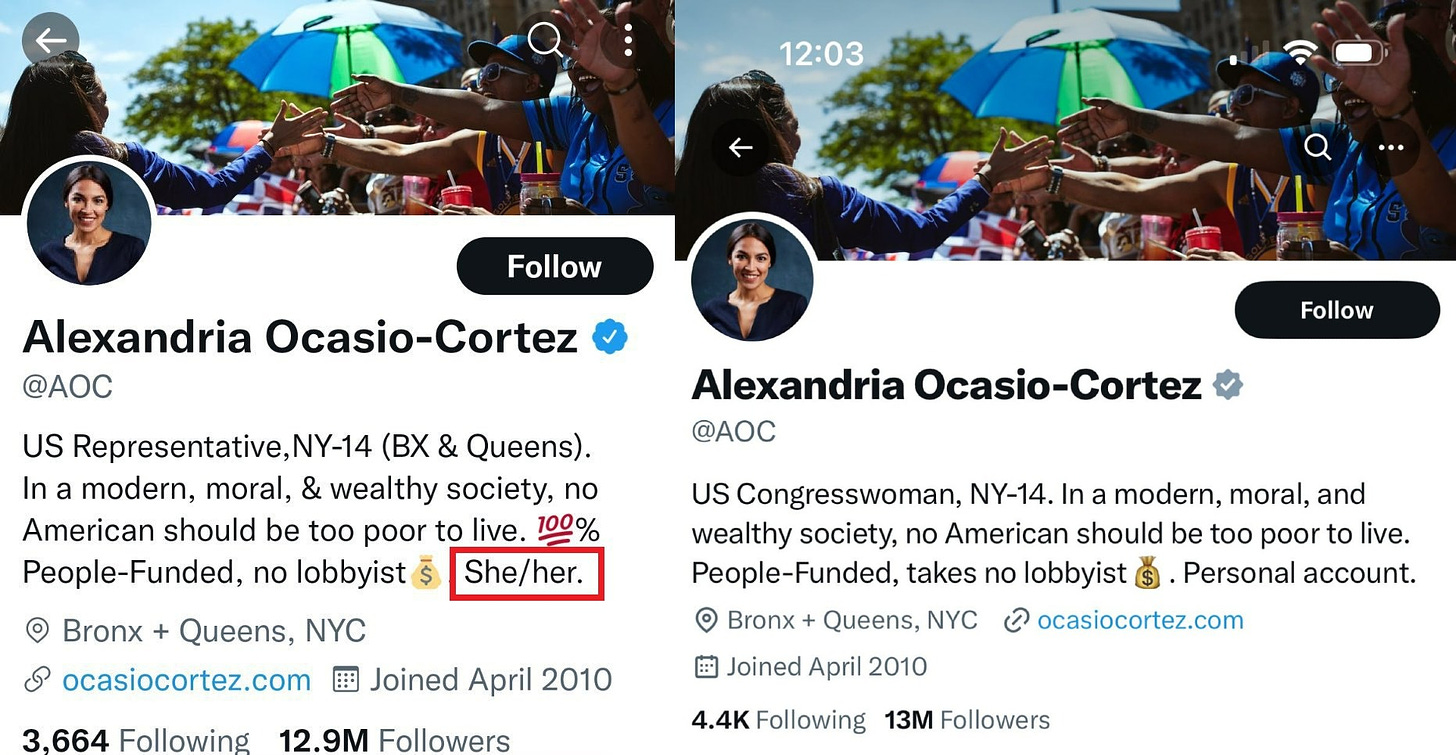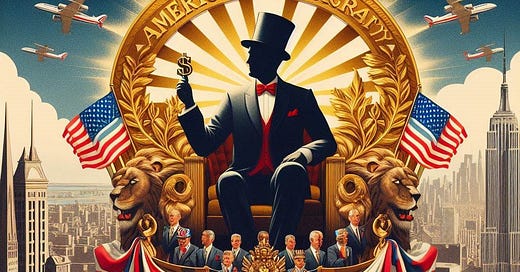
Discover more from DARK FUTURA
As a new era slowly dawns over America like an early morning dew, the question sifting through the national consciousness is: How do we move forward? How do we build a new national mythos, where an ignited sense of optimism can again be a daily custom? Not in the grand conception of ‘mythos’, the likes of which endless articles are churned about here on Substack, centered on the perceived traditions of ‘great Antiquity’, like ‘Vitalism’ and ‘Spartanism’ and the like; rather, in the much more down-to-earth, workaday sense. A new mythos in the form, simply, of a sense of a cohesive future with a tangible trajectory of progress, rather than a future which feels viscerally dead-ended into a black pall shrouding our vision into a narrow, stifling obscurity—and what cultural, ideological fabric, or umwelt, it would take to achieve this reconfiguration?
There’s a potpourri of articles out there, from all kinds of New Right Thinkers named after raw eggs and bronze ages and other bold and manly appellations. They pen triumphal, buzzy screeds filled with grand Calls to Action that feel like something inked on a scroll delivered to your mountainous retreat in the ice-tasseled claws of a shrieking eagle. No, this is not that strain of contemplation I assay to embark on here. Instead, I intend to theorize a more relatable set of expectations: not all of us endeavour to become Greek conquerors or glass-chewing stoics. But how can the average citizen return to a relatively stable form of vibrant existence, with a clear vision forward and a modicum of enthusiasm for one’s station, works, and surroundings?
The first, and arguably most powerful, change I propose could rebalance our lives in the coming decade is the simple revocation of witch hunts and persecution against conservative thought, and ‘wrongthink’ in general. One of the key ongoing trends is the rejection of the ‘Woke Left’s’ mythical gate-keeping aura over the national narrative. The massive demographic shift toward Trump amidst the under 30s, minorities, and inner city folks in general, has made it acceptable or even ‘cool’ to extol the populist and heterodox, by virtue of previously-untouchable privilege classes becoming red-pilled to Trump’s campaign talking points. Many black celebrities, rappers, and other influencers considered amongst the fashionably ‘cool’ taste-makers have made being a Trump supporter appear like the new rebellion—which it actually was all along; this despite liberals gaslighting us into believing that the party of the corporate machine was really the heart of the ‘resistance’.
And so, one underrated outcome is that the sheer dissipation of daily oppressions from the woke establishment will lead to the lifting of that pervasive distress, chronic fear, and simmering anxiety which has plagued the heterodox community since the explosion of Obama’s cultural war. On this basis alone, we can assume that the coming years could feel like a major vampiric goblin lifted from our collective chests, letting us breathe easier and enjoy more tranquil lives, while actually regaining a sense of community, wonder, and anticipation for the future. This is a big difference from living in a constant state of slow-boil dread and worry about the pervasive threats to ourselves, our families, and reputations as consequence of mis-speaking or perpetrating ‘wrongthink’.
Just imagine for a moment: it’s 2025 and Trump has neutered federal watchdog agencies and other ‘thought police’ outfits, stripped down the FBI and many other hostile bureaus trained for years to persecute dissident thought-enemies of the state. Many Project 2025 ideals have been instituted; a tectonic realignment has shifted corporate sponsorships out of fear, as DEI and woke advertising shrivels away like dead snakeskin. Many doubt such a vision because Trump is rounding up a handbasket of neocon types for his cabinet—but so far, this is mostly on foreign policy where Trump has never been great. America is addicted to imperialism because global hegemony is what gives America its putative ‘greatness’ and exceptionalism; we can’t really expect that to change much at the moment. But on domestic policy, when it comes to gutting the malignant growths of neoliberal bureaucracy, it’s an entirely different matter where Trump’s team may infact shine.
Those pervasive, daily, institutional micro-aggressions against dissidents have wreaked havoc on our lives. The simple act of going out—particularly in the post-Covid mask-terror campaign—has become an anxiety-inducing exercise for many; a routine trip to the corner store takes on the effort of some kind of infiltration of enemy territory. Think about that: true-blooded Americans feeling like persecuted enemies on their own soil.
But the tables have turned. It’s the establishment goose steppers now on the run, who must dither in the shadows, hooded and nervous of their ‘secret’ orientations being glimpsed in public. The point is simply to say: America does not necessarily need a specific grandiose vision as mythos to shake off the darkness which has enwreathed it for the past decade-plus; but rather, the simple elimination of daily terrors from the ‘Left’ should on its own do wonders in rebalancing the continuum for the average person, allowing them to breathe easier, to even dream again.
Most people do not need much—particularly nothing fancy like the overegged visions of empyrean antiquity referenced earlier; just the simple things will do. The ability to breathe freely each day: to not have to worry that your children are being propagandized, medically kidnapped, or even secretly conditioned to hate you in school.
That’s not to say there is no room for the grander conceptions—the intricately limned visions of national myth, spirit of the age, and animating conscience as direct trajectory forward in one. In this regard, America in particular has hinged on the cultural power of Hollywood to paint the path forward for decades. Hollywood and its offshoots of mainstream culture and music have been the beating heart of America’s conception of itself: the cosmic mirror which projects its reflection onto the collective future.
But since the spiritual betrayal of the Covid delusion, the populace has revolted against decadent celebrity culture and Hollywood at large. Kamala’s campaign bet on celebs still holding a mystical aura or cultural cachet to its great detriment:
Every kind of star came out for Kamala to virtually no effect, as the citizenry has become benumbed to their cretinous sermonizing, as well as disgusted by the endless stream of scandals of the last few years, exposing Hollywood’s darkest secrets.
As such, Hollywood is dying, having lost its influence and glamour—in the oldest, magical sense of the word—not merely to nudge our political leanings, but on the grander, spiritual scale: to direct the ‘spirit of the age’, command the zeitgeist, wield control over our meta-aesthetic journey as a Western civilization. It’s why Kamala’s “Joy” campaign curdled like a botched-Botox smile, as linking Hollywood’s phony toxic optimism to the Harris campaign’s already-contrived vibe yielded nothing more than synthetic Kabuki, a pageant of plastic faces and shallow hearts.
People began to feel the uncanny disconnect after ObaMao’s ‘Cultural Revolution’ of the Emperor’s Heavenly Year of 2008. But then it really hit home during the Covid Pogroms, as the establishment-aligned quislings joined the Brown Shirts in the Ventilator Massacres. Now there’s no turning back: the country looks forward but the view is foggy, nondescript for the first time. Thinkers, pundits, and pseudo-intellectuals alike are scrambling to make sense of a way ahead.
Look around you—every top thought-leader burns the midnight oil puzzling out this morass. From Matt Taibbi below:
And others:
The ever-incisive ‘reactionary feminist’ Mary Harrington briefly touches on a new intrigue along this tack she calls the New Fusionism:
What she calls New Fusionism represents a kind of new reality of ex-liberal or Libertarian Big Tech taste makers like Musk, Peter Thiel, or even Vivek Ramaswamy ‘fusing’ with the Conservative movement as—perhaps reluctant—refugees from a Left which has alienated them by betraying the core classical liberal values.
Elon is, after all, not your regular social conservative. He wants to colonise Mars. He has something like 12 children, with multiple women, via a mix of surrogacy, IVF and the old-fashioned method. He wants to implant chips in people’s brains. He envisions using technology to become something more than human. And he now owns the world’s town square, and the incoming President of the United States owes him a favour.
At least some of these things will (to put it mildly) place a strain on fundamental social conservative precepts about the family and the human person. But people are going to have to work together. That’s what politics is. I’m the very last person to ask for an insider perspective on what the result will be, but my very early hunch as a reader of tea-leaves is that we’re about to see the real new “fusionism” take concrete form.
The last such “fusionist” settlement, for the American Right, coalesced in the latter half of the twentieth century. It managed to square the circle (after a fashion) between largely-Protestant American conservative Christians, and big finance. There are plenty of extant New Right criticisms of that settlement, now, but it held for some considerable time.
After all, as of this writing, Trump officially announced Musk and Ramaswamy to head the Department of Government Efficiency.
Harrington goes on to highlight the epitome of this ‘fusion’—small-town Catholic convert JD Vance as second in command of an administration side-loaded with a vanguard of AI Big Tech brawn:
By contrast, the new settlement will, in sensibility at least, need to square the circle between a strongly Catholic-inflected social conservatism on the one hand, and Big Tech on the other: in particular the AI and biotech vanguard. If you think this an unlikely place to look for common ground, well: you’re not alone. And yet here we are. What the result will look like, in concrete policy terms is now in the hands of all those busy backstage operators; but the fact that Catholic convert, former finance guy and noted poaster JD Vance is now the incoming Vice-President may give a flavour of its overall sensibility.
Tackling the more metaphysical aspect of this transitional era, the ever-revelatory Tree of Woe declares us to be on the precipice of an entirely new civilization type. Gone are the days of the Apollonian civilization, modeled on a Hellenic logos, as well as the Magian civilization of the Christian era, and the Faustian one of our own modern era. Likewise citing Musk as chief ideological driver, he boldly proclaims the initiation of the Aenean age:
The alliance of Musk and Trump marked a moment of transition: the moment when a fading Faustian ethos gave way to an ascendant Aenean spirit.
For those interested, the Spenglerian civilizational taxonomy breaks down as follows, according to Tree of Woe:
The Apollonian civilization of Greece and Rome was fundamentally oriented toward finite, bounded space. The Apollonian soul craved symmetry, proportion, and balance. Greek temples reflected this: they were self-contained, static, monuments to perfection and harmony, epitomizing a world defined by clear limits and natural law. For the Apollonian mind, the world was finite and ordered, and human greatness was to flourish within the constraints of nature’s harmony.
The Magian civilization, defined by the world of early Christianity, Islam, and the Eastern Roman Empire, introduced a new orientation toward space. Its soul was one of enclosures and hidden divinity, symbolized architecturally by the dome and the inner sanctum. This space was an inward-looking world of faith, where God was the unseen center, wrapped in mystery and revelation. Here, the cavernous space beneath the dome offered not infinity, but the intimate, potent presence of the divine. The Magian soul yearned for unity within—a unity between humanity and the divine, encapsulated within sacred enclosures.
Then came the Faustian civilization, what we call the West, with its unique impulse for boundless, limitless space. The Faustian spirit, rising from the medieval era and flourishing through the Renaissance and the modern age, looked ever outward, to the endless horizon and the stars beyond. Its architecture captured this drive: Gothic cathedrals reached for the heavens with their spires, while modern skyscrapers and technological feats extended this yearning for the infinite. The Faustian soul was endlessly driven towards conquest, discovery, and dominion, undeterred by obstacles or ethical qualms. This civilization dared to scale mountains, harness the atom, split the genes, and chart the stars. But with its relentless pursuit came a great cost: the heedlessness of Faustian progress began to reveal the dangers of an unchecked quest for dominion, a pursuit now tinged with exhaustion.
Interestingly, his conception of the Aenean is remarkably consonant with Mary Harrington’s ‘fusion’ concept, despite having no links to it. This type of synchronicity is central to the changes occupying current thinkers mentioned earlier.
Many are fed up with the last decade’s suffocating focus on inward ego and identity; i.e. microcosmic vanities which turned humanity’s narrative inward toward a trivialized nexus of sexual orientation, skin color microaggressions, et cetera. As a collective sigh of relief, humanity seems poised to look outward at the grander pictures for the first time in a generation. It explains not only Elon Musk’s own urgency for the stars, but a growing number of people’s preoccupation with and enthusiasm for his developments toward that goal. After years of being crushed into thinking ‘small’, people for once want to think ‘big’ again. Grand gestures, boundless imaginings, the universal over crude vanities, and visions of limitless new worlds—that could be the new ‘vibe shift’ taken up if Trump’s term manages to stir enough sleepers awake.
Another aspect of the ‘fusion’ phenomenon is that the next few years will likely see a big shake-up at the fundamental level of party and cultural leanings. The realignment was obvious to see during Trump’s election numbers, as Latinos, blacks, and even white females began to break away from both the Democratic party and as adherents of liberalism in general. That means, just like California blue-voters flocking to Texas to adulterate the native red-voting pool, here too we will see the general conservative/right “spaces” being increasingly populated—or ‘invaded’, if you will—by refugee drifters who’ve become alienated from their party. This stands to slowly dilute the conservative/right into some new admixture. That’s not necessarily entirely a bad thing—it’s simple evolution, and the stodgier and more hidebound segments of the ‘right’ certainly could use a little ‘airing out’ by the more moderate emigres as part of the Spring cleaning of renewal.
It’s a natural evolutionary cycle, and likely a needed one, partly because every major culturo-political culminating point tends to engender a reactionary swing to the opposing extreme; i.e. a period of unhinged ‘leftist’ rule naturally invites the blowback of a retaliatory ‘rightwing’ authoritarianism. As such, the bleed-through dilution we’re now witnessing can serve to soften the blowback via compromise and trimming of the extremes.
The changes we’ll incur over the next few years stand to be pivotal, long-lasting ones. Trump’s victory heralds a major seachange in culture: not by virtue of Trump himself, the tides had obviously already been shifting the past few years; Trump merely came at the perfect time to deal the final clarifying blow. The fact that his administration now faces an improbably rare alignment, a perfect political syzygy of House, Senate, and Judiciary all under his control, means the thematic domestic changes will be overwhelmingly felt, ricocheting downstream through culture in a way that cements generational shifts as ‘new norms’. Furthermore, the Democrats can be said to have suffered not just some ‘freak’ or chance defeat, but rather a total revocation by humanity at large which could echo down several terms and administrations. After the Trump team’s house cleaning on vote integrity, the establishment will struggle to ever steal another election, be it congressional or presidential. That means the momentous civic and cultural changes we’re about to witness will become deeply embedded hallmarks of a ‘new’ era for at least the next generation or more.
What better way to cap this all off than to quote the famous oracle who prophesied the exact opposite of what is now transpiring? Francis Fukuyama’s new article brainstorms the implications of Trump’s now iron-clad victory. The man who once heralded a nascent age in the post-Soviet world now invokes the coming of another new one:
He opens by citing the American people’s rejection of the liberal ethos which has dominated society since the ‘80s:
The blowout victory of Donald Trump and the Republican party on Tuesday night will lead to major changes in important policy areas, from immigration to Ukraine. But the significance of the election extends way beyond these specific issues, and represents a decisive rejection by American voters of liberalism and the particular way that the understanding of a “free society” has evolved since the 1980s.
After Biden had won the presidency in 2020, he continues, the previous Trump term felt like an ‘anomaly’—but:
…it now seems that it was the Biden presidency that was the anomaly, and that Trump is inaugurating a new era in US politics and perhaps for the world as a whole.
This gets to the heart of my thesis—that what we’re experiencing now are hardly blips, but rather a generational polar shift.
He goes on to give a very workable and astute explication of what went wrong:
But while the above sounds reasonable, where Fukuyama claims the danger lies is that Trump intends to go above and beyond smashing merely the more recent ‘neoliberal’ and ‘woke liberal’ additions to the base ideology—he wants to smash ‘classic liberalism’ itself. And this is what lies at the heart of the epochal shift which stands to alter the trajectory of the world itself.
Interestingly, while he readily defines the neo- and woke- liberal strains, he strangely demurs from doing so for canonical Liberalism itself, which he treats with velvet-gloved deference. In reality, when examining his syntax one finds—as is common with globalist plants—he is merely interchanging ‘liberalism’ for the ‘global order’, i.e. that system of hushed unwritten bedrock rules agreed upon by WEF types in secret backroom handshakes. The way we know this is Fukuyama cites several highly illiberal objections to what Trump is doing; for instance, he’s opposed to Trump’s free speech policies even though government censorship goes against classical liberal ideals. Likewise, Trump has ‘demonized the government’, Fukuyama complains: to fault him for that is also highly illiberal, as two of the chief classical liberal tenets are “individual liberty” and “limited government”; other examples of this hypocrisy abound in the article.
So you see, the Fukuyama types don’t actually believe Trump is destroying “liberalism”—in fact, it is they who cling breathlessly to the last vestiges of highly illiberal secret orders meant to keep certain dynastic cartels at the helm of global power.
We can see that ESG, DEI, CRT are starting to fail, with companies abandoning them or going bankrupt in the process; just this past week MSNBC was put up for sale, with CNN announcing the lay off of hundreds of employees. Game, film, car, and advertisement companies are increasingly spurning DEI—advertisers in general have now flocked back to Musk’s X after the election.

Hell, even influencers and politicians who’ve garbed themselves in tokenized wokeness these past few years appear to be abandoning the obsolete virtue signal carousel like used rags.
Before and after Trump’s win:
To conclude, America doesn’t need some hastily stitched-together new ‘mythos’ or ideal, some pastiche of foregone antiquities or factitious symbolisms akin to Kwanzaa or Festivus. After all, it was the ‘left’ which went down that troubled route, attempting to confect some new national mythos with a host of artificial celebrations like Pride Month, which slowly grew into a kind of ecumenical monster. No, what America needs is to be shorn of its managerialist throttling to let society breathe naturally, and expand its own stifled vision forward, in an organic way.
It’s the only real way to do culture: seed the ground, keep off the locusts, then let grow what may—otherwise, you’re just playing god, and a fall awaits all those of such hubris.
If you enjoyed the read, I would greatly appreciate if you subscribed to a monthly/yearly pledge to support my work, so that I may continue providing you with detailed, incisive reports like this one.
Alternatively, you can tip here: Tip Jar


























The only cure is the return of accountability . If incentives go towards honesty , integrity and deserved compassion the ship will right itself . At this time deceit and selfishness are rewarded and not penalised - telling the truth IS a revolutionary act. What's a politicians promise worth ?
Let's not get too carried away. Biden/Harris lost because of the economy. That's what the exit polls showed. The middle class has been crushed by covid and the inflation the followed--the insane cost of housing, healthcare, higher education, groceries and burgeoning debt. The voters didn't shift over to Trump, they stayed home in disgust at having to chose between two clowns, neither of which addressed their main concern--their material well-being. The woke stuff is stupid and irritates people but it's not the driver. Trump can have success domestically with the values stuff, but what's bringing the country down is Imperial overreach and a shrinking, precarious, middle-class. The middle-class is being sucked dry by corporate monopolies and financial predators. That is the real hollowing out of America. The flag, the cross, strong families and traditional values are not enough. Take on the gays, the feminists, the DEI crowd--fine. But until you take on the banks, major corporations and Wall Street, you're still rearranging deck chairs. You might feel a little better as the ship stinks, but it's still going down. There is a future, it's just not in America. It's called China--and the rest of the world knows it.